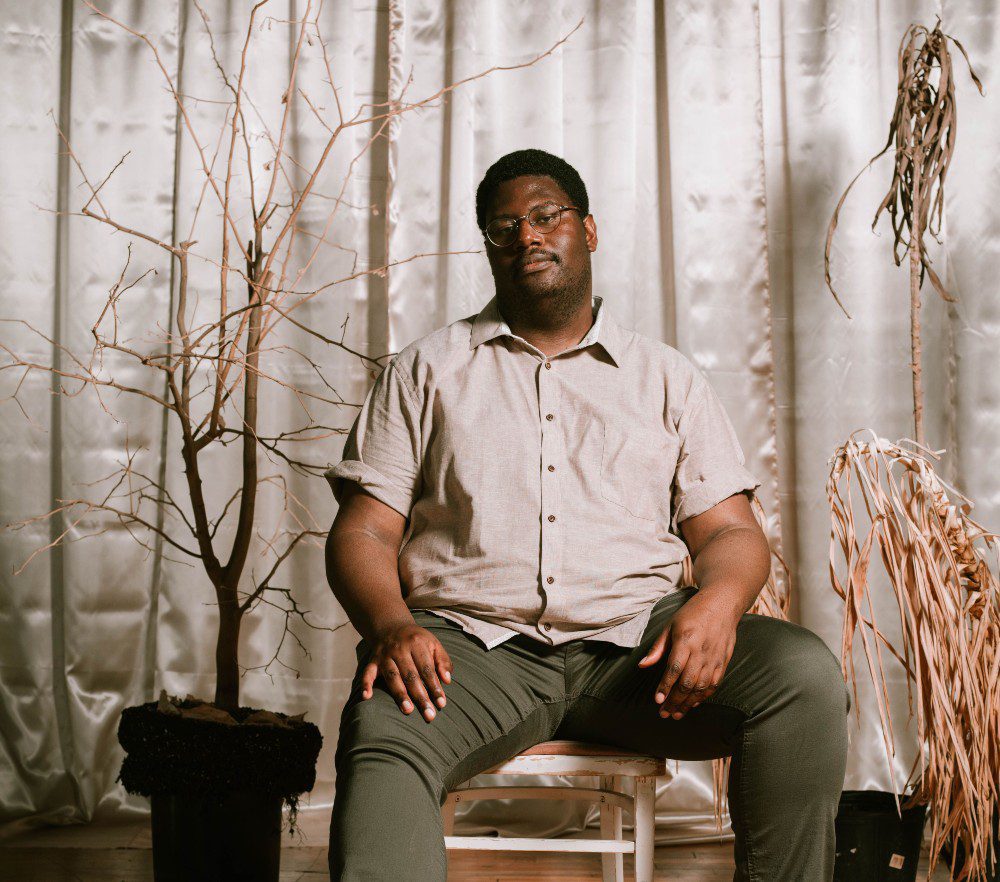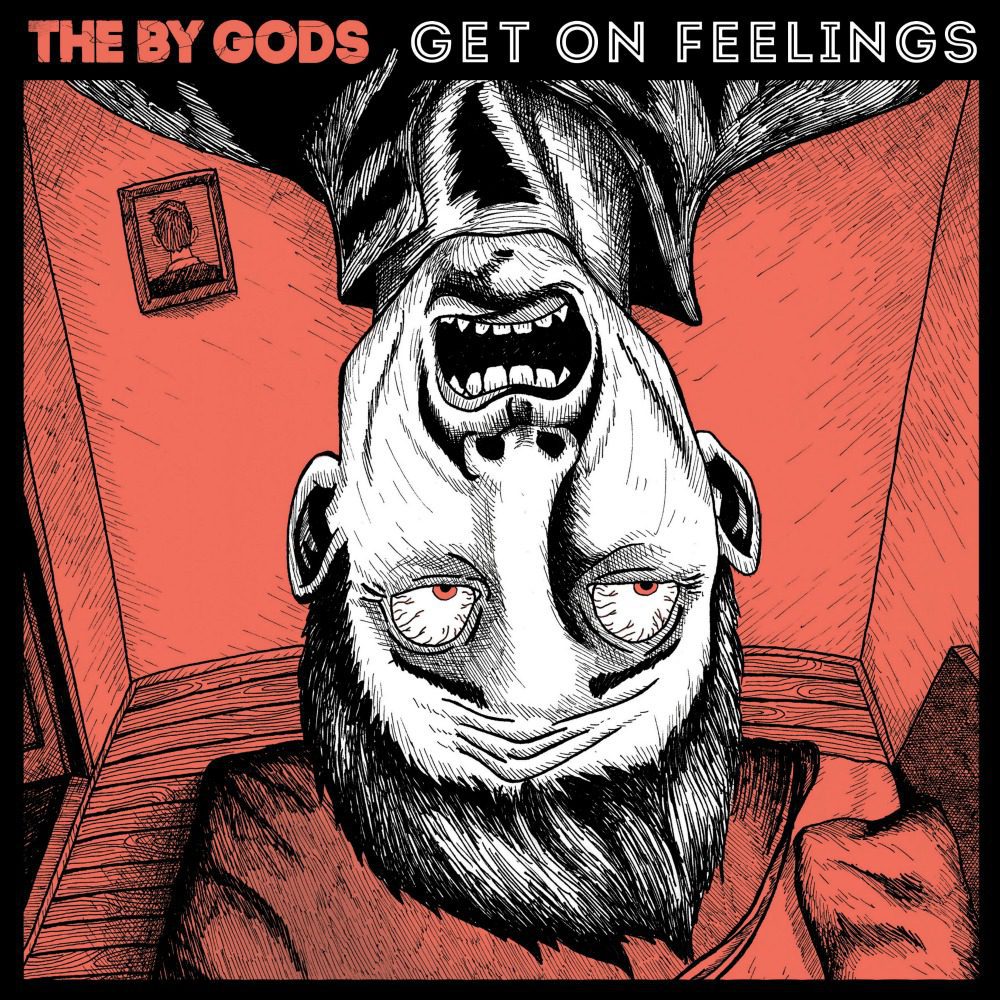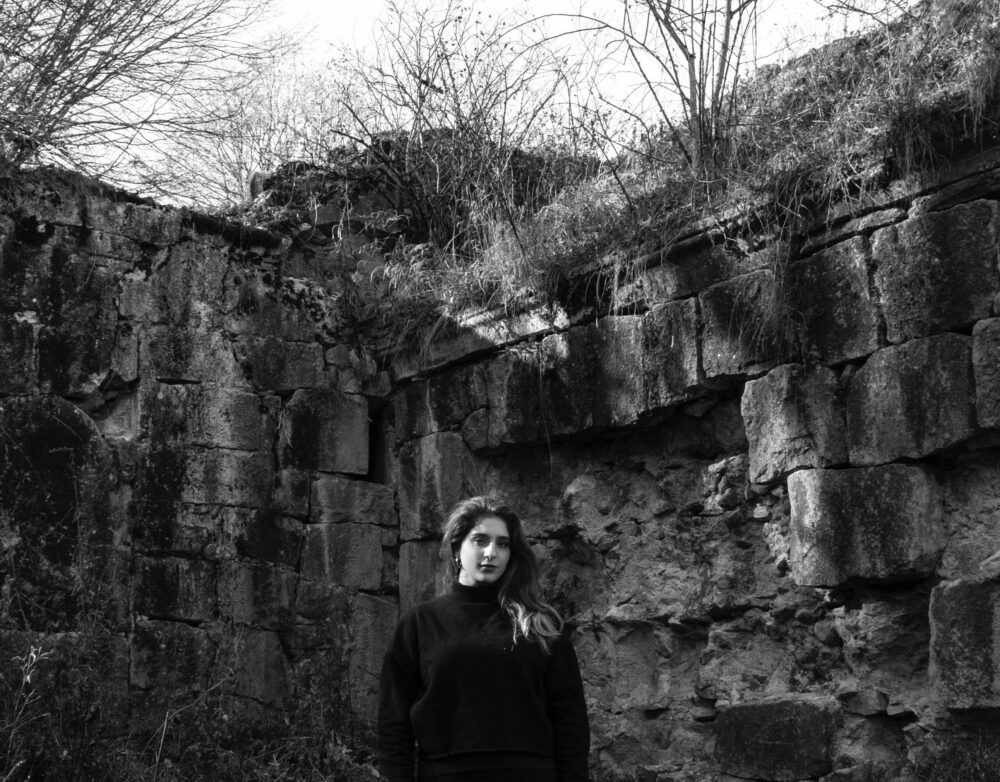

Cedric Noel wrote his fourth LP Hang Time from the perspective of a young adult attempting to transform lived experience into lessons for his teenage self. But the Canadian singer-songwriter admits the album, released November 12 via Joyful Noise Recordings/Forward Music Group, has a deeper purpose as well. Touching on the often-neglected topic of racism (and tokenism) within the indie rock genre, Noel tells Audiofemme he “hope[s] that this album can contribute to the reimagination of what is understood as ‘Black music’ and help remove the boundaries that term currently encompasses.” Throughout the work, Noel allows his sonic imaginings to embody experiences which are often difficult to put into words – developing an intimacy with the listener through poignant compositions that feel close to the heart.
Across his previous releases, and through playing in other bands, Noel has become a pillar of Montreal’s vibrant indie rock scene, where he was primarily surrounded by white people. He began to feel as though he needed the space to “figure out a lot of things in terms of how I felt about myself and my identity and how I felt about my white peers and the disconnect that I had with them due to our difference in race and upbringing.” Written from 2016 to 2020, much of it during self-imposed exile from Montreal at his family’s home in Ottawa, Hang Time became a way to distill and examine these feelings, and allowed the artist to communicate his truth through sonic avenues.
“I think that the majority of musical choices that are made on the album reflect that feeling of ostracization or loneliness or the lack of empathy within a certain community,” he explains. “I think when I listen to the songs on Hang Time now I can very much hear somebody who’s in their mid-twenties and struggling with certain personal things.”
When writing the album, Noel was listening to artists like Lomelda and Okay Kaya. “Both of those artists bring a certain sense of intimacy when talking about struggle, and I find that comes through a lot in both the music and in the vocal deliveries,” he reveals. Sonically, he was influenced by Fleet Foxes’ third album Crack-Up, not in terms of specific sounds, but in how different parts of the songs sit together. Noel found inspiration, too, from artists in the Montreal rock scene like Thanya Iyer, Nennen, SkinTone, and Paper Beat Scissors. “There are so many folks that inspire me and that have made me think of music in different ways,” he says.
To that end, Hang Time is marked by inspired collaborations with artists like Squirrel Flower and Common Holly. By adding additional vocals on the tracks, Noel is able to further diversify the sounds of the work, creating a quilted sonic pattern and allowing space for more consistent intrigue. “Sometimes I want to completely remove myself from the part that they contribute to a song,” Noel says. “I don’t want every album I make to be 100% me. Most of the time, it’s going to be a lot more interesting to have other people’s voices instead of me always inserting myself in a musical situation when I so often don’t need to.” For an album so focused on personal experience, collaboration leaves room for distinct and varied stylings throughout.
In addition to playing bass for Le Ren and Ada Lea, Noel also has another solo project known as Special Solace “that I started quite a while ago now,” he says. “It’s sort of jus a way for me to explore a different side of my musical tastes with something more fun and something with a lot more levity, musically anyways.” As an artist with synesthesia (a neurological condition in which the stimulation of one sense causes an involuntary reaction in another, such as hearing colors, seeing numbers or letters surrounded by colorful auras, or tasting sounds) Noel initially created Special Solace as an outlet for music with more brightness and saturated colors. Now, he sees having two projects as an opportunity for “musical exploration, experimentation and improvisation.”
The practice of communicating through sound often requires emblematic arrangements paired with a refined perspective on what an artist is attempting to pass through to a listener. Noel’s ability to harness these two aspects of writing can be viscerally felt on Hang Time, “even if lyrically the songs jump around from topic to topic,” he says. “They all have a similar longing and malaise in them which I think comes from those open voicings. Otherwise there is a fair amount of distortion and ambience which can help give some sonic context to the lyrical content as well.”
As a songwriter, he finds himself less attracted to specific lyrics and more interested in what can occur through the repetition of singular phrases. “My intention when I am repeating is to either build intensity, or remove that intensity, or to hammer home a point, or to show different sides of a certain statement,” he explains. “I think that allows the listener to have a wide breadth of understanding of what the lyrics might be about.”
When listening to Hang Time, it’s hard to not find yourself deeply compelled by the vulnerability displayed on the album. Noel embodies honesty without being fanciful or overly sentimental. Instead his authentic expression leaves room for listeners to identify their own place in his introspections. Swirling with ambient, rock, and folk sounds, Noel expands the indie rock genre while creating a distinct place for himself in its canon.
Follow Cedric Noel on Instagram for ongoing updates.




